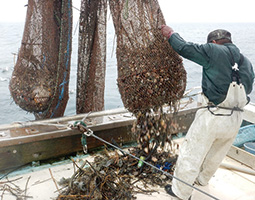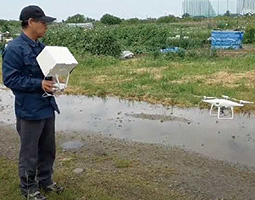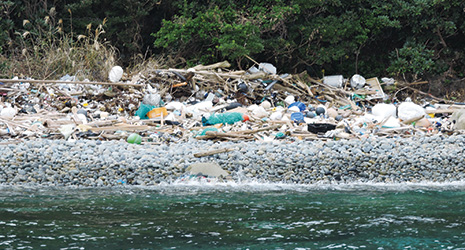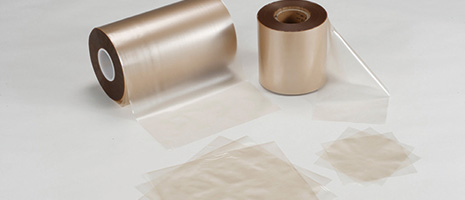INDEX

Marine litter collection by fishers in Kagawa Prefecture 
Litter distribution survey system that uses drones, developed by Pirika, Inc.
August 2020
A Smart Relationship with Plastic

Marine plastic litter has become a global problem in recent years. A variety of initiatives are being carried out through public-private cooperation in Japan to “smartly” reduce plastic litter.

Marine plastic pollution has become a serious international problem in recent years. The marine plastic litter that flows into the ocean causes a variety of problems such as degradation of the marine environment including ecosystems, loss in the functions of coasts, negative impacts on scenery, hindrance to ship navigation, and repercussions for the fishing industry and tourism. According to a report presented at the World Economic Forum (Davos Meeting) in January 2016, the amount of plastic produced globally over the 50 years from 1964 to 2014 rapidly grew to more than 20 times the amount in 1964, and approximately 8 million metric tons of plastic is flowing into the ocean every year. The report indicates that if effective measures are not taken and we continue as we are now, plastic litter in the oceans will outweigh fish by 2050.
Osaka Blue Ocean Vision
At the G20 Osaka Summit in June last year (2019), Japan took the lead in sharing the Osaka Blue Ocean Vision, which aims to reduce additional pollution by marine plastic litter to zero by 2050 as a common global vision. It is important for many more countries, including emerging and developing countries, to share a goal and steadily implement effective measures toward solving the problem of marine plastic pollution. Going beyond the G20, 86 countries and regions currently share this vision. And to realize this vision, the Japanese government has established an Implementation Framework that encourages the dissemination and sharing of best practices (experience, knowledge and techniques). Based on this framework, the first follow-up meeting was held in Tokyo last October with the participation of 17 countries, regions and international organizations. The meeting was greatly significant in starting a mutual enhancement of measures. Additionally, a portal site (https://g20mpl.org) was launched through a Japanese initiative so that each country could easily update their own initiatives. In cooperation with Saudi Arabia, which holds the G20 presidency this year, Japan will encourage efforts in line with this Implementation Framework.
Plastics Smart
Plastics Smart is a campaign implemented by the Ministry of the Environment, Japan aiming to create a national trend and advance initiatives to prevent the generation of marine litter, while encouraging proper understanding of the state of marine plastic pollution through public awareness activities and public information, with the key phrase, “a smart relationship with plastic.”
As of August 2020, over 1,200 initiatives have been registered to the Plastics Smart website, and information is spreading widely both in Japan and abroad through the campaign site and various events. (http://plastics-smart.env.go.jp/en/)
Examples of Initiatives
・ To reduce the 80 million plastic umbrellas consumed in a year in Japan, Nature Innovation Group Co., Ltd. has implemented the “i-kasa” (ai-kasa) sharing service, where umbrellas can be rented and returned at nearby “Umbrella Spots” when needed.
・ The Kagawa Prefecture Litter Countermeasure Promotion Council is working with municipalities, the prefecture and fishers to collect and treat litter that has accumulated on the sea floor. Fishers bring back the litter salvaged during fishing to the port, and the transportation and disposal is done at the expense of the municipality.

・ Using kanten (agar), which is made from tengusa (agar weed), Ina Food Industry Co., Ltd. produces film made only with ingredients that can be eaten. This film is used as a replacement for plastic in food packaging, etc.
・ Pirika, Inc. has developed a social media platform that makes it possible for users to post photos and comment about litter they have picked up, thereby visualizing clean-up activities. More than 500,000 people have participated from more than 80 countries worldwide. The company is also developing a river litter distribution survey system that uses drones.

In Japan, 139 local governments, which cover more than half of the population, have already issued declarations and policies regarding measures against marine plastic litter. In addition, to promote the formulation of such declarations and policies by local governments, the Ministry of the Environment will continue to promote interactions between corporations and concerned organizations tackling the problem of marine plastic litter.

